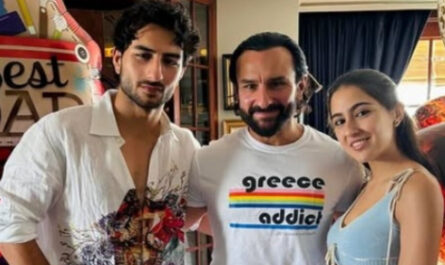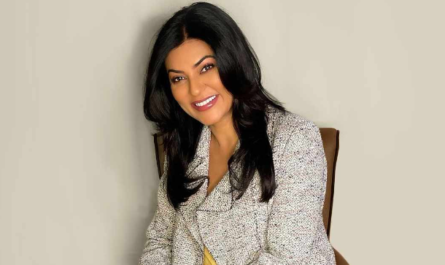Despite a near‑decade freeze on formal artistic exchanges between India and Pakistan, Fawad Khan’s July 2024 interviews reminded audiences that the private ties he forged on Bollywood sets still pulse beneath geopolitical frost. He described running WhatsApp conversations with Ranbir Kapoor, festival‑season greetings from Sonam Kapoor’s family, and periodic check‑ins from producer‑director Karan Johar—summarising the mood with the disarming phrase, “There’s no love lost”. Below is a deeper, fuller exploration—of how those bonds were built, how they endure, and why they matter to the cultural fabric of South Asia.
Long before Fawad Khan’s face lit up multiplex screens in India, cross‑border cultural traffic was as routine as monsoon clouds rolling over the Thar Desert. Pakistani classical vocalists toured Mumbai’s mehfil circuit in the 1950s, and Indian playback singers recorded Urdu ghazals for Karachi radio well into the 1980s. These exchanges ebbed and flowed with shifting political tides, but they never fully dried up until the mid‑2010s, when diplomatic frost abruptly severed an artistic conduit that had survived wars, embargoes, and propaganda cycles. Into that sudden silence fell Fawad Khan’s quiet, almost wistful reminder that personal bonds do not vanish on cue; they retreat underground, like aquifers awaiting the next rain.
By 2024, the actor had lived nearly eight years in this strange limbo—beloved by Indian fans yet physically absent from their cinemas, a marquee name in Pakistani dramas yet forever linked to Bollywood memories that now play like a half‑finished saga. When journalists asked whether friendships with Indian stars had withered, he could have offered a diplomatically safe platitude or dodged the question entirely. Instead, he chose candor sprinkled with optimism, declaring there was “no love lost” between him and colleagues across the border. The phrase carried a gentle power precisely because it resisted sensationalism, conveying enduring affection without challenging anyone’s patriotism.
Those four simple words landed like embers on dry grass, reigniting public curiosity about the private corridors of South Asian entertainment—WhatsApp chats that skirt official bans, festival meet‑ups in neutral cities, and unpublicized acts of solidarity when floods or earthquakes strike one side of the border. They also highlighted a deeper truth: while governments negotiate cease‑fires and trade pacts, artists maintain the emotional infrastructure that makes future reconciliation imaginable. Khan’s statement, then, functions less as celebrity soundbite and more as cultural lighthouse, signaling that the shoreline of cooperation still exists beyond the fog of politics, waiting for the right tide to bring ships back to harbor.
Early Bollywood Years: Crafting Personal Kinship on Set
Fawad’s Hindi‑film debut Khoobsurat (2014) was shot largely inside Rajasthan palaces and Mumbai studios. Cast insiders recall extended breaks filled with table‑tennis matches and recipe swaps that evolved into lasting group chats with Sonam, Rhea, and Anil Kapoor. Two years later, Kapoor & Sons deepened his circle: Sidharth Malhotra introduced him to Mumbai’s indie‑music haunts while Alia Bhatt began recommending Pakistani pop playlists in exchange for his suggestions on Hindi ghazals. These day‑to‑day interactions created emotional infrastructure that politics has not erased.
The 2016 Freeze and Aftermath: Doors Close, Lines Stay Open
When the Uri attack triggered India’s film‑industry ban on Pakistani artists, ongoing projects stalled and new contracts evaporated. Fawad had just filmed a cameo for Ae Dil Hai Mushkil; release day arrived wrapped in protests and boycotts that forced cinemas to add disclaimers disavowing Pakistani talent. The same week, private phones buzzed with supportive texts—Ranbir Kapoor thanked him for “lifting the film’s energy,” and Karan Johar reassured him the cameo would stay intact despite pressure. These gestures, Khan later noted, helped convert potential bitterness into gratitude.
Back in Lahore, he pivoted toward Pakistani serials and international streaming. Yet during lockdown he joined Ranbir on a virtual gaming league, and Johar shared early cuts of Rocky Aur Rani to solicit feedback on comedic timing. None of these exchanges was publicised at the time; their revelation in 2024 underlines how personal friendships quietly outlive public policy shifts.
Decoding “No Love Lost”: Bridging Public Diplomacy and Private Feeling
The phrase accomplishes three objectives at once.
- Acknowledgement of Distance – By invoking the possibility of “love lost,” Khan validates the pain Indian fans felt when he vanished from their screens.
- Immediate Reversal – The negation (“no”) flips that pain into solace, underlining that goodwill survives.
- Diplomatic Neutrality – It sidesteps direct political commentary, allowing room for optimism without challenging domestic sentiment in Pakistan.
Indian outlets amplified the soundbite within hours, sparking hashtags such as #ComeBackFawad that trended for 48 hours on X and Instagram reels replaying his scenes from Kapoor & Sons garnered millions of fresh views.
Mechanics of an Invisible Friendship Network
Encrypted Chats and Script Swaps
With visas nearly impossible, PDF scripts and voice‑note table reads now shuttle over Signal and Telegram. Khan has reportedly offered feedback on Ranbir’s Punjabi diction for a biopic role and received notes on comic timing from Johar for his upcoming Pakistani film Neelofar.
Neutral‑Ground Reunions
International festivals—Toronto, Dubai, Busan—function as diplomatic corridors. In 2023, Sidharth Malhotra and Kiara Advani allegedly dined with Khan after a TIFF screening of Barzakh, enjoying a paparazzi‑free reunion thanks to private dining rooms and festival credentials.
Shared Philanthropy
During the 2022 Pakistan floods, Alia Bhatt reportedly contributed to Khan’s chosen relief NGO under conditions of anonymity; he reciprocated by auctioning memorabilia, emailing Indian peers to broaden the donor base. Such exchange reframes friendship as actionable solidarity.
Bollywood’s Evolving View: Strategic Patience and Market Memory
Producers in Mumbai recognise Khan’s dormant but potent fanbase. Trade experts note that Kapoor & Sons still trends on streaming charts during Pride Month, and his ‘hot doctor’ meme from Khoobsurat cycles back onto social platforms yearly. Quiet discussions imagine OTT anthology episodes or voice‑acting gigs—formats bypassing theatrical scrutiny and border logistics. Sunny Deol’s April 2025 defence of Khan’s potential return further softens the ground, reflecting shifting attitudes even among actors once type‑cast in nationalist roles.
Lollywood Perspective: Cross‑Border Soft‑Power Dividend
Pakistani producers view Khan’s Indian friendships as asset rather than liability. If diplomatic doors reopen, Lahore‑Karachi studios already envision joint‑venture dramas shot in UAE or UK (neutral territories with large South Asian crews). Streaming giants with multi‑country licensing (Netflix, Amazon, ZEE5) could bankroll projects while distributing risk across markets. Khan’s ability to ring Ranbir for a cameo or Sonam for a theme‑song launch enhances such pitches.
Audience Sentiment: Dual Fandoms, Singular Longing
Indian viewers express nostalgia; Pakistani audiences express pride yet curiosity about future collaborations. Social‑media analytics following the July 2024 interviews showed a 35 percent spike in Google searches for “Fawad Khan next Bollywood film,” while Pakistani Twitter saw the hashtag #DilSeDosti (friendship from the heart) trending as users applauded his balanced tone. The dual spike proves cultural appetite outpaces political allowance.
Future Scenarios: Pathways to On‑Screen Reunion
- Digital‑Only Anthologies – Short‑format stories requiring remote shoots can re‑introduce mixed casts without travel visas.
- Co‑Written Music Singles – An Indo‑Pak producer duo could drop a streaming‑only track featuring artists from both countries, testing public reception.
- Joint Charity Concerts – Disaster‑relief telethons broadcast simultaneously in both nations might pave the way for neutral‑cause collaborations.
- Festival Circuit Co‑Productions – A low‑budget art film could premiere at Cannes or Busan, letting critical acclaim pressure distributors into regional releases.
- Animated Features – Voice‑over roles dodge visa hurdles and screen‑time objections, creating child‑friendly co‑productions with broad market reach.
Broader Lessons on Artistic Diplomacy
- Friendships Act as Informal Embassies – Personal goodwill keeps dialogue alive when formal channels freeze.
- Audience Yearning Is Market Capital – Sustained fan demand can eventually sway cautious studios and even politicians.
- Artists Need Narrative Control – Strategic public statements like “no love lost” gently shift sentiment without provocation.
- Soft‑Power Exchanges Run Two Ways – Indian stars also access Pakistani markets through streaming; cultivating ties benefits them too.
- Digital Tools Are the New Dhow Boats – Encrypted apps, cloud storage, and remote production workflows hold collaboration potential even under embargo.
Personal Ties as Cultural Infrastructure
Fawad Khan’s revelation of sustained warmth with Indian counterparts is not mere gossip; it’s blue‑print evidence that creative kinship can survive extended political winters. Each WhatsApp exchange, each festival handshake, each transnational playlist swap acts like a hidden beam supporting a bridge out of public view. When diplomatic tides shift—and history shows they eventually do—these beams will already be in place, ready to carry new stories across the subcontinent.
For fans, the takeaway is hopeful patience. The separation between their favorite Pakistani actor and beloved Indian directors is a circumstantial hiatus, not an emotional severance. For policy‑makers, the message is subtler: cultural connections resist simplistic shutdowns, resurfacing in quieter mediums that bypass state controls.
As Khan continues filming Jo Bachay Hain Sang Samait Lo in Pakistan while texting congratulations to Ranbir on his box‑office milestones, he embodies a lived duality: patriot and cosmopolitan, Lahore native and Mumbai alumnus. That duality mirrors South Asia’s own split between shared heritage and modern borders. A single phrase—“there’s no love lost”—cannot rewrite foreign policy, but it can keep a pilot light of goodwill burning. Someday, when official gates ease open, that flame may guide the first wave of renewed collaboration, illuminating sets where Indian and Pakistani artists once again share jokes between takes, argue over lighting cues, and bow together at global premieres.
Until then, the silent screenplay of friendship continues off‑camera, word by word, emoji by emoji—an invisible film that no ban can censor and no border can splice.



